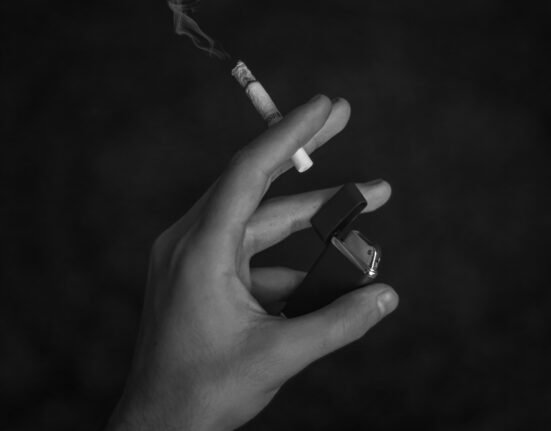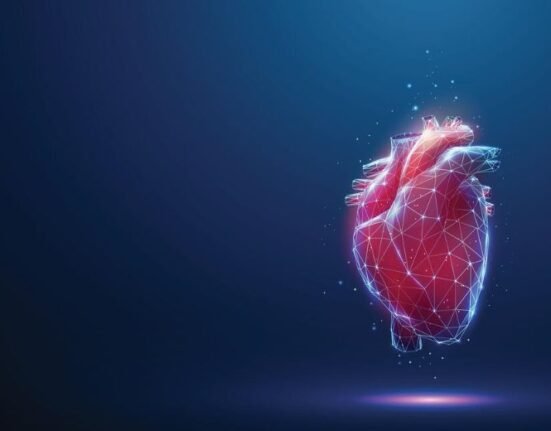By Dr K. Leelamoni
November 7, 2023: My cousin’s son, 46, went to a hospital in the southern Indian state of Kerala as he felt dizzy, nauseated and had a bout of vomiting.
Within minutes of reaching the hospital, he collapsed and died. The doctors said he had a sudden cardiac arrest.
It was a rude shock for me, considering his age.
He was an information technology professional who used to work long hours into the night and had no other cardiovascular risk factors, except a slightly high blood pressure.
“Why did this happen to me?” his wife asked me when I met her.
This a question to which I have very little answer.
700,000 lives a year
Sudden cardiac arrest, or SCA, has now emerged as a major health issue in India, claiming the lives of many young people over the last few years. Several young celebrities, seemingly physically fit, have succumbed to heart attacks in recent times sending shock waves across the world’s second most populous nation.
One study done in 2012 put the overall mortality due to sudden cardiac death in India at 10.3% — about 700,000 a year. Among these 21% of the deaths occurred in people below 50 years of age. Another research done recently revealed that sudden cardiac arrest was responsible for more than 1.2 million deaths in India among youngsters.
Sudden cardiac arrest (SCA) is a sudden unexpected death caused by a change in heart rhythm. It is the largest cause of natural death in the US and is responsible for half of all heart disease deaths.
Cardiac arrest & heart attack
The WHO says close to 18 million people die due to cardiovascular disease every year out of which maximum deaths are due to SCA. Heart attacks occur when there is a blockage in one or more of the arteries to the heart, preventing the heart from receiving enough oxygen-rich blood.
If the oxygen in the blood cannot reach the heart muscle, the heart becomes damaged. Heart attacks increase the risk of sudden cardiac arrest.
A cardiac arrest is when a person’s heart stops pumping blood around their body and they stop breathing normally. It occurs when an electrical malfunction in the heart causes an irregular heartbeat (arrhythmia) and the heart stops functioning. It is of sudden onset without warning and death occurs within minutes.
Some may encounter symptoms like chest discomfort, irregular heartbeats, short spells of breathlessness, sudden feelings of weakness and lightheadedness, nausea and vomiting, but more than half of the cases of SCA occur without prior symptoms.
Sedentary lifestyle
The incidence of SCA among youngsters is increasing due to a sedentary lifestyle that involves incessant smoking, drugs, alcohol, obesity, lack of a balanced diet, hypertension and diabetes and being involved in a high-stress work environment.
People with a family history of heart disease and diabetes also may have a high chance of suffering from SCA. Some, however, may not have any known risk factors.
Studies have shown an increase in heart attack deaths among the younger age groups in the US, since the start of Covid- 19 pandemic. Those who have had Covid-19 multiple times are also at a higher risk of heart problems.
The competitive and fast-paced nature of modern life often subjects youth to chronic stress. Stress triggers the release of hormones like cortisone and adrenaline which over some time can damage arteries and elevate blood pressure.
SCA risks
People coping with stress may resort to unhealthy eating habits which in turn lead to risk of heart disease. Hence stress management techniques and regular physical activity are highly essential for a healthy heart.
Over-exercise, crash diets and improper dietary patterns also need to be corrected. Physical exercises should be followed within the limits of a person’s tolerance limits.
Sometimes an undetected heart condition may cause a young person to die suddenly during physical activity as seen in sports, strenuous exercise or vigorous activities like performing arts.
The youth of today can protect their cardiac health by simple measures like adopting a heart-healthy diet, making positive lifestyle changes and following stress management techniques thereby mitigating the sorrow and lifelong grief of their innocent family members.
(The writer was a former Head of the Department of Community Medicine at the Government Medical College in Kozhikode and Thiruvananthapuram and worked at the Amrita Institute of Medical Sciences in Kochi.)









2 Comments